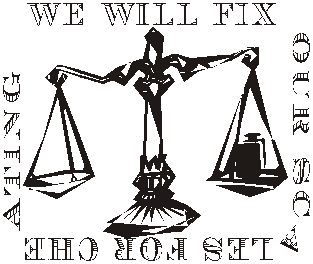The Text: Luke 16:1-13 or 16:10-13 (NAB)
- 1
- 1 Then he also said to his disciples, "A rich man had a steward who was reported to him for squandering his property.
- 2
- He summoned him and said, 'What is this I hear about you? Prepare a full account of your stewardship, because you can no longer be my steward.'
- 3
- The steward said to himself, 'What shall I do, now that my master is taking the position of steward away from me? I am not strong enough to dig and I am ashamed to beg.
- 4
- I know what I shall do so that, when I am removed from the stewardship, they may welcome me into their homes.'
- 5
- He called in his master's debtors one by one. To the first he said, 'How much do you owe my master?'
- 6
- 2 He replied, 'One hundred measures of olive oil.' He said to him, 'Here is your promissory note. Sit down and quickly write one for fifty.'
- 7
- Then to another he said, 'And you, how much do you owe?' He replied, 'One hundred kors 3 of wheat.' He said to him, 'Here is your promissory note; write one for eighty.'
- 8
- 4 And the master commended that dishonest steward for acting prudently. 5 "For the children of this world are more prudent in dealing with their own generation than are the children of light.
- 9
- I tell you, make friends for yourselves with dishonest wealth, 6 so that when it fails, you will be welcomed into eternal dwellings.
- 10
- 7 The person who is trustworthy in very small matters is also trustworthy in great ones; and the person who is dishonest in very small matters is also dishonest in great ones.
- 11
- If, therefore, you are not trustworthy with dishonest wealth, who will trust you with true wealth?
- 12
- If you are not trustworthy with what belongs to another, who will give you what is yours?
- 13
- No servant can serve two masters. 8 He will either hate one and love the other, or be devoted to one and despise the other. You cannot serve God and mammon."
Commentary
Government officials, past and present and perhaps future, are being accused of, investigated for, charged with amassing wealth in billions(!) of pesos through bribery, commissions in contract deals, illegal gambling, corruption and extortion. The news is simply overwhelming. Click on this.
"Mammon of Unrighteousness"
In the Gospel text above, Jesus seems to have allowed the use of illegal means for a noble end. Jesus counsels his disciples to be make “dishonest wealth” (mamwna/j th/j avdiki,aj, literally, “mammon of unrighteousness”) a friend (fi,loj). He commends a corrupt manager (Luke 161-9). One might be tempted to read this text as license to use "dirty money" or "blood money" for a good purpose. Material Possessions
There is a tension in the text, and readers are invited to wrestle with it. The issue here is material possessions, a clear theme of this chapter (Luke16). In fact, Luke talks a lot about material possessions both in his Gospel and in his second work, the Acts of the Apostles. In this said chapter, we see that Jesus is not totally against material possessions. In the Acts of the Apostles, the first Christian community even shared their own personal resources to survive (Acts 2:44; 4:32).Koinonia
This gospel is not about being dishonest for a good purpose; not about the license to use dirty money to help the poor a la Robin Hood. It is about sharing of possessions (in Greek, koinonia).In the first story (Luke 16:1-8), notice that the manager reduced the interests of the debts. Since his master praised him for doing this, we can assume that the said manager used his own expected profit or commission to offset those interests. Making “friends with dishonest wealth” is sharing your wealth.
God and Mammon
Wealth only enjoyed by the few becomes indeed a “dishonest wealth”. Wealth does not only belong to you it also belongs to others (Luke 16:12). To serve God and mammon (an Aramaic word for “wealth” or “power”) at the same time is a contradiction because when you "serve God", it implies you are sharing out your "mammon" to others most especially to the needy.
No comments:
Post a Comment